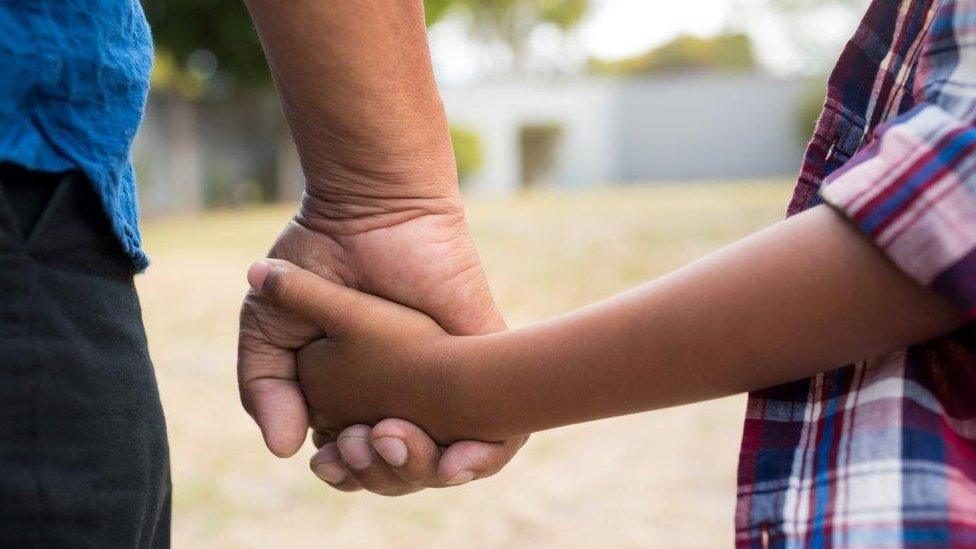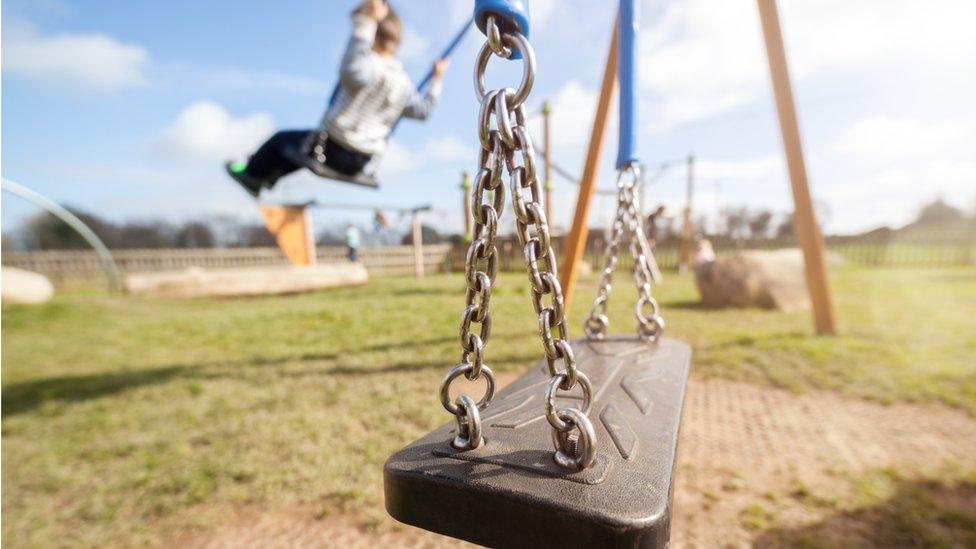Children abused in the home 'unseen and unheard'
- Published

Children abused in the home are often "unseen and unheard", despite making up two-thirds of sex abuse cases, a report from four official watchdogs, external says.
"There remains a disbelief and denial about familial sexual abuses," the inspectorates for police, health, probation and children's services say.
It means abusers "too often evade justice", their joint report says.
The government says it is taking urgent action that will see serious sexual offenders spending longer behind bars.
The inspectors examined how child abuse within families was handled in six areas of England between September 2018 and May 2019 - and found local agencies "woefully ill equipped" to deal with it.
Despite some pockets of good practice, they found local and national strategies to tackle the problem virtually non-existent.
In the worst cases, criminal investigations would ignore the needs of the child, with children left without medical treatment or mental-health support.
And sometimes, delays to police investigations left children "in limbo or even unsafe", with weak bail conditions leaving abusers free to contact or even live with children they may be abusing.
The inspections, in Bracknell Forest, Berkshire, Cornwall, Derby, Islington, north London, Shropshire and York, found, overall, professionals lacked training, focus and knowledge about child sex abuse by family members or friends so were unable to identify abusers and how to stop them.
There needs to be a greater emphasis on prevention work, which is currently either "absent or focused on known offenders", the report says.

Significant risk: Samantha's story
Samantha, seven, lived with her mother, whose new partner, a registered sex offender with convictions for child abuse, had just been released from prison.
He was released without a risk assessment or sexual offending assessment and an assessment by the probation service was late and did not take full account of his risk to children or refer the family to children's social services.
"No referral for assessment was made and Samantha was left at risk of significant harm," the report finds.
Best practice: Hannah's story
Hannah told her teacher she had been sexually abused by her adult brother.
The school immediately informed social workers and Hannah was visited at school by a police officer and social worker the same day, who spoke to her with support from her teacher.
The alleged abuser was immediately removed from the home.
Hannah received very good emotional support from her teachers, school nurse and social worker and an intermediary helped her provide evidence for ensuing court proceedings.


Too often professionals rely on children to verbally disclose abuse - but children are unlikely to tell someone they are being sexually abused, particularly when the abuser is close to them, the authors say.
"Everyone in society needs to know how to recognise the signs of abuse of a child and how best to respond," the report says.
It says important lessons from child sexual exploitation are not being applied to abuse in families, which should be just as much of a priority.
"We can no longer stay silent on this issue - we have to talk about it and act," the report says.
Missed opportunities
In a statement, the government said it would "soon be publishing a first-of-its-kind national strategy to tackle child sexual abuse, better support victims and improve collaboration between the government, agencies and law enforcement".
"Alongside work to better safeguard children, new sentencing laws will see serious sexual offenders spending longer behind bars and we are recruiting 20,000 extra police officers to bring more abusers to justice."
Ursula Gallagher, deputy chief inspector of general practice and children's health at the Care Quality Commission, said the report highlighted "too many missed opportunities" to protect children from harm.
"It is vital that people in healthcare and across other agencies work together, think about the wider social situation a child might be living in, share information to protect children from abuse and create support around those who are at risk."
Amanda Spielman, Ofsted's chief inspector, said: "If we are to deal with incest or other abuse involving families or family friends, we must talk openly and honestly about the signs and symptoms - to protect children and to stop abusers in their tracks."